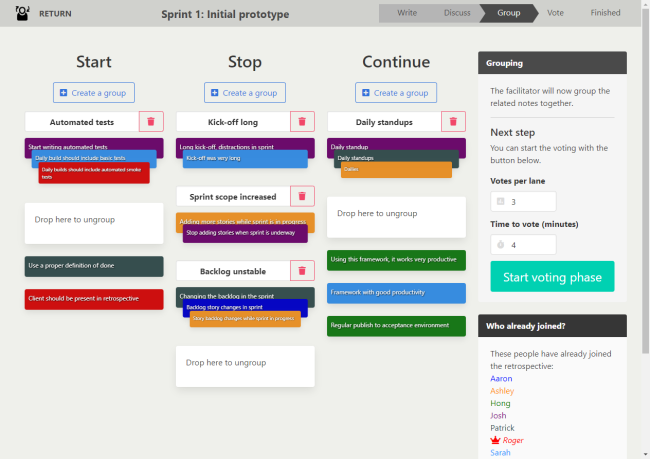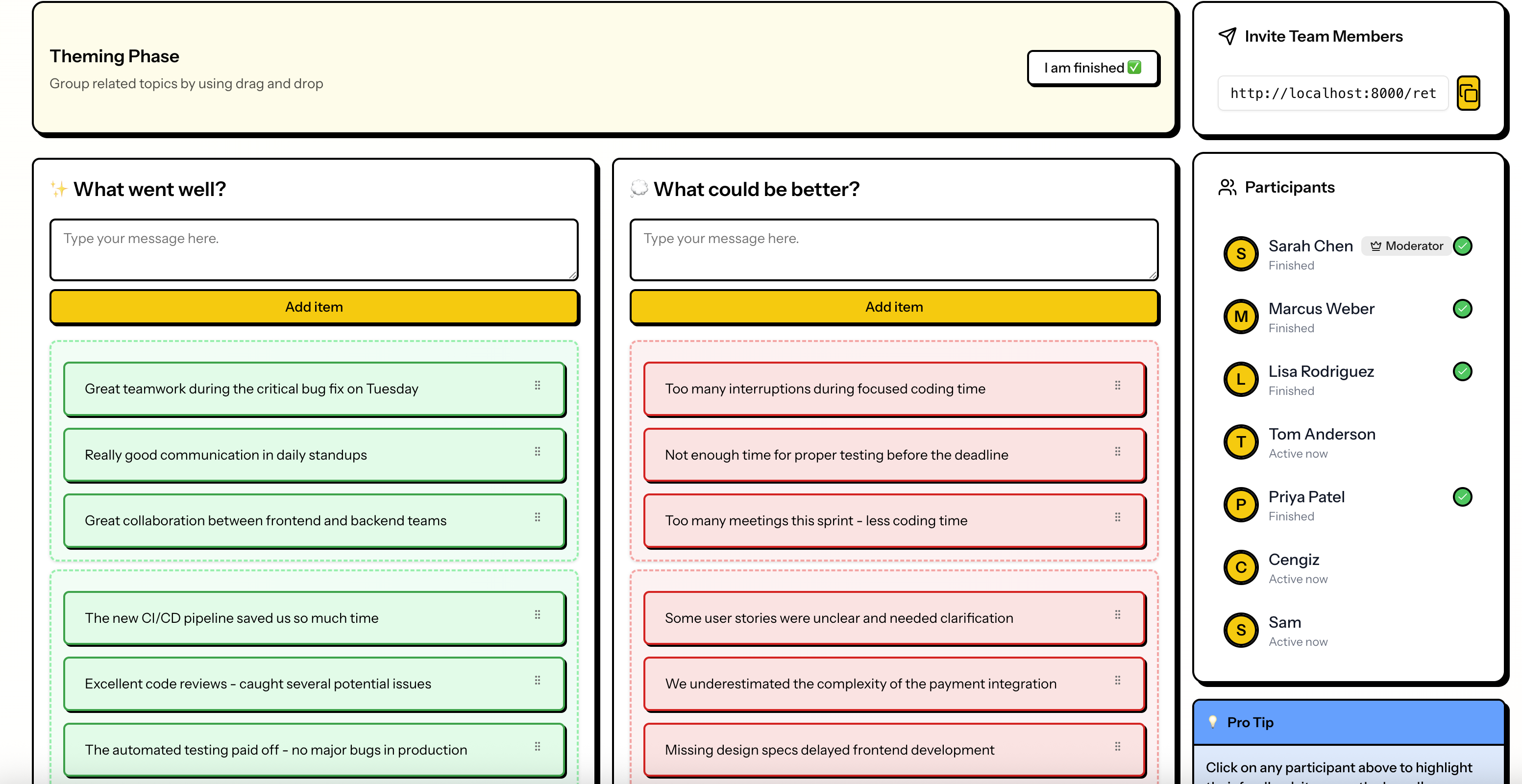Open Source Retrospectives Tools for Remote Scrum Teams
In the Agile world, bottom-up continuous improvement is the new mantra that replace the (rarely done) postmortem reviews of traditional project management approaches used in software development. Today, distributed Scrum teams with remote work are more common than you might think, despite the fact that Agile methods favor local teams.
A lot of Agile software development teams work with remote members in a virtual organization. Distributed Scrum teams that have the technical skills to install and manage open source web tools can benefit from this list of open source retrospective tools.

Fast Retro
Fast Retro is an open source retrospective tool for Agile teams. It aims to simplicity: just two columns (good/bad), everyone presents their points, group similar topics together, vote on what matters most, then discuss and create action items. It is based on PHP and Node.js.
Websites: https://github.com/JangoCG/fastretro, https://fastretro.app/
OnyxRetro
OnyxRetro is an open source app for online retrospectives. It works in English and German.
Websites: https://github.com/patricsteiner/retronyx, https://onyxretro.web.app/
Postfacto
Postfacto is an open source tool that lets you run an agile retrospective even when your team is distributed across the world. Your retros will live update across all your devices, so each participant can follow along on their device. Easily set up Postfacto to work with Google OAuth, so users can sign up with their Google accounts. Alternatively, you can control access to your instance with the admin dashboard. You can create private retro boards for your team that are password protected, or choose to leave them public so that anyone you give the link to can access them. Participants can add and vote on items from their mobile devices, so it is easy to run a retro without everyone in the group having a laptop nearby. This works well for retrospectives where some people are in the room and some are remote.
Website: https://github.com/pivotal/postfacto
Refacto
Refacto is an open source tool for Scrum retrospectives. It is a complete from-scratch re-write of Postfacto, with a focus on simplified code, development, and deployment.
Website: https://github.com/davidje13/Refacto
RemoteRetro
RemoteRetro is an open source retrospective tool. It aims to provide a collaborative, real-time, facilitator-driven retrospective through idea generation (invite ideas (happy, sad, confused) from participants), mute mapping (participants group ideas into categories without speaking), labeling + voting (participants vote on categories for discussion and root-cause analysis), action item generation (participants generate and assign action items), action item distribution (facilitator distributes action items via email to all retro participants). You have to register with a Google account.
Website: https://github.com/stride-nyc/remote_retro
Retro tool
Retro tool is an open source retrospective tool that aims to provide a simple and effective way to perform retrospectives for remote Agile teams. You can collaborate with your remote team to improve what you do, guided by a simple workflow.
Website: https://github.com/retro-tool/
RetroMatic
RetroMatic is an open source tool that can be used by Scrum tools for real-time retrospectives. See how to leverage Angular and Firebase for syncing data across all the participants. Retrospective’s are held at the end of sprints in Agile software development. The team reflects on what happened in the sprint and determines actions for improvement.
Websites: https://github.com/MassiveNerds/RetroMatic
Retrospected / Retro-Board
Retro-Board is an open source retrospective idea board that works on the simple “what works fine / what could be improved / brillant idea” feedback approach. This javascript tool is used to power the retrospected.com website where you can use it without registration.
Websites: https://github.com/antoinejaussoin/retro-board
Retrospectify
Retrospectify is an open source tool for doing Agile and Scrum team retrospectives digitally. This can be useful when doing retrospectives with remote teams or when you want to keep track of retrospective outcomes over time. It features three types of notes, moving around/prioritizing notes to your team’s needs and adding points to individual notes.
Website: https://github.com/pepf/retrospectify
Return
Return is an open sourece realtime retrospective tool for Agile teams. It is built in ASP.NET Core and Blazor that has been tested with the major browsers. As facilitator for your Scrum team, you can lead the retrospective through the writing, grouping and voting phase.
Websites: https://github.com/Sebazzz/Return
Scrumlr
Scrumlr is an open source tool and a webapp for collaborative online retrospectives hosted on scrumlr.io. This project is written in React on top of the Parse Platform. Different types of retrospectives (“Start, Stop, Continue”, “Mad, Sad, Glad”, etc.)
Website: https://github.com/inovex/scrumlr.io
Wakita Sprint Retrospective Tool
Wakita is an open source agile sprint retrospective tool to make sprint retro’s more collaborative in the remote work era.
Website: https://github.com/StevenWeathers/wakita-retro-tool



Last Comments